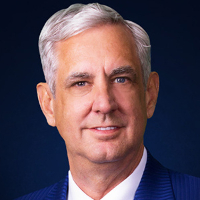Hebron White Collar Crime Lawyers, Illinois
Sponsored Law Firm
-
 x
x

Click For More Info:
-
LaPapa Law Group
10704 S Western Ave Chicago, IL 60643» view mapAccident & Injury Law, Criminal Defense Changing Lives One Case At A Time
At LaPapa Law Group, we understand that life doesn’t always go as planned. We have the knowledge and experience needed to competently represent you in court.
800-694-2681
Sponsored Lawyers
1-4 of 4 matches
Criminal, Traffic, DUI-DWI, White Collar Crime, Felony
Donald J. Ramsell holds the distinguished position of being the sole Illinois DUI defense attorney to have ever argued an Illinois DUI case before the United States Supreme Court, a historic moment in the court's 213-year history. In a landmark initiative in 2008, Ramsell spearheaded hearings demanded by the Illinois Supreme Court to scrutinize the reliability of the horizontal gaze nystagmus test utilized by police during field sobriety assessments. This pivotal issue continues to capture the attention of legal professionals nationwide. The year 2007 saw Ramsell being honored as a Sustaining Member of the National College for DUI Defense, recognizing his substantial contributions to this specialized field of law. His advocacy skills were on display in 2006 when Ramsell successfully secured orders mandating the Illinois State Police Breath Testing Section to extract and disclose the internal data from breath testing devices. This action uncovered widespread inaccuracies in the devices used throughout Illinois. Donald Ramsell's legal expertise was acknowledged by Chicago Magazine in 2005 when he was designated as an "Illinois Super Lawyer," a title he has been awarded several times, most recently in 2025. Further elevating his professional credentials, in 2005 Ramsell became the first attorney in Illinois to achieve Board Certification in DUI Defense, as per the American Bar Association’s standards, through the National College for DUI Defense. Previously, in 2004, Ramsell was recognized by the Chicago Sun Times as one of the top five DUI Defense Attorneys in Illinois, affirming his rank among the elite in his field. In 1999, Ramsell uncovered that the Department of Public Health had neglected essential accuracy tests on breath testing equipment. This discovery led to the suppression of flawed test results statewide and prompted a significant regulatory overhaul, transferring control of the program to the State Police. This was preceded by a critical finding in 1998, where Ramsell exposed software manipulation in the Intoxilyzer 5000 (Series 6400 and 6600), which compromised the validity of numerous breathalyzer results across Illinois and led to a statewide inadmissibility of the flawed results. In 1988, Ramsell brought to light falsifications in the statewide breath testing program's documentation, casting doubt on thousands of tests and instigating an immediate reassessment of the program's integrity. Earlier, in 1986, his investigative efforts revealed that the same statewide program was employing dubious methods in certifying breathalyzers. His findings disputed thousands of test results and mandated immediate revisions to the program, marking the beginning of his long-standing commitment to ensuring fairness and accuracy in DUI enforcement.
(more)


 Gregory R. LaPapa Chicago, IL
Gregory R. LaPapa Chicago, IL Practice AreasExpertise
Practice AreasExpertise

